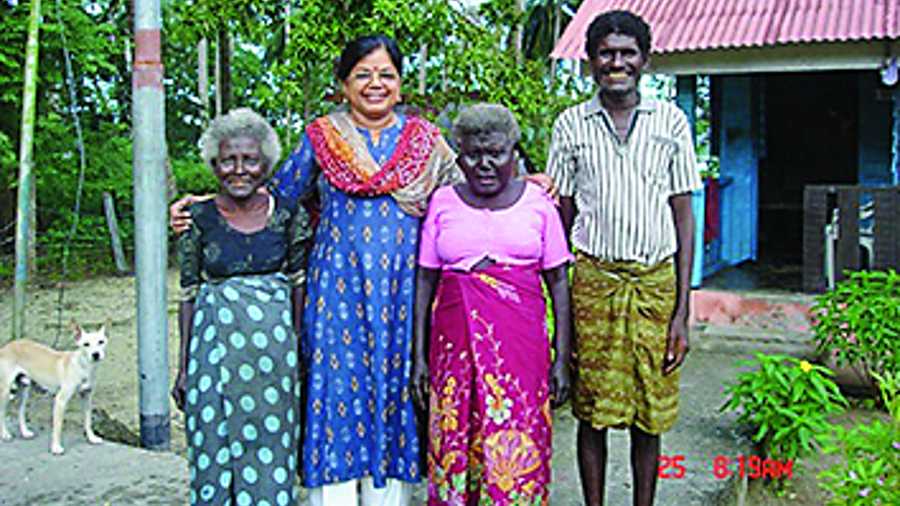Book: Voices from the Lost Horizon: Stories and Songs of the Great Andamanese
Author: Anvita Abbi
Publisher: Niyogi
Price: Rs 995
My best childhood memories are of my grandmother’s elder sister; she was my best friend and would narrate stories from Thakurmaar Jhuli, Aesop’s Fables, Panchatantra and so on. But nothing could match the stories about her childhood in the Chittagong hills and then Dhaka, a place she left soon after the Partition. These tales are the memories which I carry and have been passing on to my daughter in the hope that she will be connected to her roots through these oral narratives. Anvita Abbi’s Voices from the Lost Horizon — apart from its contribution in documenting and furthering the preservation of the Great Andamanese language — appeals to me as a gift from the last speakers of the language to the posterity of the Great Andamanese community.
Abbi is not merely a researcher and documenter but also a passionate lover of the oral tradition. She tries to take the last remaining speakers of the Great Andamanese language into their childhood to recount long-forgotten stories and songs. The book opens with intricate geographical details of the Andamans and information about the inhabitants: the Great Andamanese, Jarawa, Onge and the Sentinelese, who migrated some 70,000 years ago from Africa. Abbi provides a lucid account of her research team and the issues they faced in Strait Island. The researcher’s accounts make for a rich source of ethnographic methodology for students of anthropology, culture, sociology, and language as well as all those passionate about environment-human connections.
What follows is a collection of 10 stories and 46 songs; although 60 songs were collected, the scholar could decipher only 46. The book is a visual treat with coloured photographs and illustrations and will attract young readers. It is a beautiful amalgamation of an old-school ethnographic tradition and modern-day technology — the stories are linked to QR codes to share the invaluable experience of knowing the last speakers of Great Andamanese. The folk tales that claimed that birds were the ancestors of the Great Andamanese (p 35) took me on a whirlwind of thoughts about how animals figured so often in the ‘creation stories’ of the indigenous people of Canada and North America as well as the mythic tale of Rome’s origin and the she-wolf feeding the twins, Romulus and Remus.
Each story — from Phertajido to Juro’s and Maya Lephai’s — is a tale of human relationship, curiosity, love, gratitude, sacrifice, revenge and survival; each holds up before us the lives, experiences and customs of the Great Andamanese community. The myths and superstitions of the community, such as the varied funeral types in accordance with the manner of death, take readers on a journey into the Andaman and Nicobar Islands and their mysterious inhabitants. Paradoxically, these people who are believed to have originated from birds, the symbol of unlimited freedom and peace, are captive in their land (p 46) without citizenship rights. Abbi recounts how she was threatened with arrest by the administrative officers if she furthered her research on the Great Andamanese people. This only reveals the narrow bureaucratic vision about preservation and research on ancient civilization and communities. The book is a rich collection of stories and songs from a world gone by and a language lost.
The scholar has done full justice to the people she researched. Great Andamanese may be an extinct language with the death of Nao Jr. and Boa Sr. — the last speakers — but their voices will echo in the form of the oral narratives and songs that Abbi so beautifully presents. It is a legacy for the coming generations of the community and for all those who love to know how the past and present are intrinsically woven amidst a future where human stories may seem unreal.











